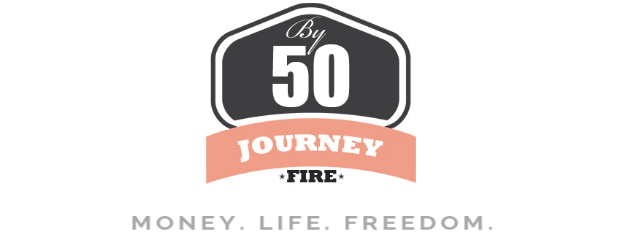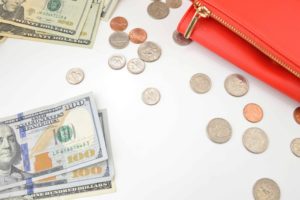How I Paid Off Nearly $100K Of Debt On One Income
Today, I’m going to share my experience with you about how to get out of debt with one income. I did it while my husband was unemployed and with a kid.
Over a decade ago, it seemed like we would never get ahead financially. I often asked myself “how can we get out of debt while we’re still living paycheck to paycheck?”. The question that I wasn’t able to find an answer. Every time I paid our bills, I needed to make sure that we had enough money in our bank account. And you know, it took me hours just to pay a couple of bills. Because I had to make sure that we had enough money to cover all the bills before my next paycheck. One day I had enough. I was sick and tired of being sick and tired of making sure. The fear was real. No one should never feel this way.
Our debt journey
As a young couple, we started with nothing; no job hence no money. All we had was each other then. Despite the fact that we were happy and enjoyed our life together, we were struggling financially. It seemed like we both never gotten a steady job at the same time. If one of us had a job, the other was always unemployed. So money was always an issue. We used to live paycheck to paycheck. And it was terrifying! I still remember the feelings of desperation and hopelessness. It was real and I had nobody to turn into.
I married my husband when I was only 21 years old. My newlywed husband was a sophomore in college and wasn’t working. I moved 9,000 miles from home to marry him. English is my third language and I had a tough time finding a decent job even with a college degree.
Until 5 months in of our marriage, I got my first job at a Chinese restaurant near our apartment. I did everything from answering the phone to washing dishes. While my husband was going to class, I worked at the restaurant from 4 am – 2 pm earning $5 per hour. We didn’t have much money then. But we also didn’t have any debt.
Several years later, we bought our first home together when I was 26 years old. My husband also had his first real job. The home mortgage debt was the first debt we had. And that was just the beginning of our debt journey. Regardless of our financial struggle, I insisted to go back to school (earned 2 graduate degrees debt free) and was hoping to get a good stable job afterward. I’m a firm believer of investing in yourself. At the time, it appeared to me that grad school was the way to increase potential income. So I went back to school full-time and also worked full-time. My wishes came true. I had a great job offers even before I finished grad school.
Our debt started to accumulate when we lived apart. After grad school, I moved to New York for a job of my dream. My husband stayed in Georgia so he could keep his job. Our bills were then doubled. As much as I hated to pay for everything twice (2 electric bills, 2 water bills, 2 internet bills, and our mortgage + my rent in New York), I thought it was the best way just to live apart (so we both had our jobs). My small studio apartment rent was way more expensive than our 2,000 sq. ft. home mortgage in Georgia, my oh my! Just before I accepted the job offer in New York, my car died desperately (the engine was cracked while I was driving on a highway). On top of my expensive rent, we also had a car payment.
After paying double in utility bills for about 6 months, we decided to live together in hope to save money. So my husband quit his job and we put our home up for sale. Of course, the house never gets sold and my husband never has gotten a new job. However, with a generous home buying assistance from my new employer, I thought it was a good idea to buy a house instead of to rent an apartment. And it was. Shortly after buying our house in New York, we learned that we expected a baby. With a baby, 2 mortgages, a car payment, and an unemployed husband, debts were piled up quickly. Regardless of our finances, we were happy. Everything seemed perfect.
Until one day, I spent more than 3 hours to pay 2 bills. Why the heck I spent 3 hours just to pay 2 bills. Something wasn’t right here. We had too much debt and we lived beyond our means. The fear of not having enough money to pay necessity hit me. And I realized we could not live like this any longer. There must be a better way. I decided to tackle our debt regardless of my husband’s employment status. I didn’t want to wait until he gets a job to start. There were no more excuses.
How I paid off nearly $100K of debt on one income in under 6 years with a kid*
 *note: this debt was our consumer debts. We still have a mortgage debt which we plan to pay it off by 2029.
*note: this debt was our consumer debts. We still have a mortgage debt which we plan to pay it off by 2029.
1. Lived frugally and below our means
Once my mind was set to get rid of our consumer debt. We learned to live frugally. Frugality is an amazing thing. You know, you become creative with what you have. You learn to utilize stuff you already have. It prevents you from buying more stuff you don’t really need. In fact, we don’t need much to live happily. There are only 4 things we need to live actually; a place to live, food, clothes, and healthcare/medicine. As long as you have these 4 things, you are okay.
So we talked to each other and developed our financial goals. We stopped eating out. We cut our TV service and got a streaming media player instead. Our weekend shopping habit and impulse purchases became history. We learned to buy groceries when they were on sale and planned our meals around that.
2. Tracked our income and spending
I seriously tracked our spending and my income like never before. On top of my paychecks, I also earned extra cash from a couple of side hustles. Back in the day, I used a spreadsheet to track our expenses. Let me tell you, it took a lot of time! Every time money was in and out, I had to record those activities on the spreadsheet. Nonetheless, I really enjoyed seeing the numbers and knowing that we would have enough money to pay bills next month.
Because of how much time I used to record the transactions, it made me not want to buy anything. For example, every single thing on the receipts was entered by its categories; grocery went to living while gas went to transportation. If we went to 3 stores that week, imagine how much time I spent entering those transactions on a weekend. I didn’t want to do that tedious task I created to myself. We simply shopped less. Sometimes being lazy is a good thing.
Until I discovered this free online tool, I spent countless hours on my spreadsheet. Tracking our spending really helped us see the financial weaknesses we had. It pointed out our money problems. We spent too much on general merchandise. It’s basically from our bad shopping habit. This tool has motivated us to get better financially. Because there is a big number on the top left showing net worth. You know, when you see that you have a negative net worth, it psychologically motivates you to get your net worth up. It’s like. “Hey, look at your number! It’s negative. Don’t you feel financially embarrassed!?! Shame on you!”
*note: the Personal Capital screenshot below is not ours (Nope – the ‘$1.3M net worth is not ours). It’s from Personal Capital and it’s just for a demonstration purpose only.
I wished I started tracking our finances sooner.
So we stopped all the shopping nonsense. We thought twice before we bought anything. Further, we developed a waiting period before we bought big-ticket items. All of these because we didn’t want our net worth went down the hill further.
3. Budgeted
Living your financial life without a budget is like floating your life on a leaky boat. The boat will sink eventually, just like your finances. That was us a decade ago. We didn’t have a financial goal. And we didn’t care to have one, let alone budgeting.
We learned to budget. Budgeting really helps us stay on track financially. It’s like a roadmap to tell our money what to do each month. It was really hard at first but we kept at it. It’s really worth it since it helped us get rid of our debt.
After tracking our expenses for just a few months, I started to learn where our money leaked. So I created our budget from that, adjusted our habit, and improved our budget plan. For the fixed expenses like a mortgage, you can’t really change it. However, for variable expenses like electric or foods, we can reduce them. We stopped eating out and cooked from scratch. We learned to reduce our electricity bill by turning off unwatched TV, switched to LED lights, took a quick shower, switched to a smart programmable thermostat, etc.
It took me about a year to finally have a decent budget. A decent budget means a money plan that we are able to follow. And it should help you with your financial goals. Budgeting is not easy. But it’s worth it!
If you need help, I have typed up a nice monthly household budget worksheet to help you create a budget that works. It can help you get rid of debt faster and get on top of your finances. So subscribe to my email list (no spam ever and you can unsubscribe at any time 
PS: after you fill out the form below, please check your email to confirm your subscription, and get the password to the free subscriber library!
4. Only contributed my 401(k) to the match and no more
When I realized that we didn’t have much money left to tackle our debt (well, since we only had one income and I maxed out my retirement plan at work), I looked further to increase my take-home pay. Reducing my 401(k) contribution seemed to be the best option at the time. It was time to tackle our debt so I thought I did the right thing. The interest rate of our debt was way higher than the average rate of return on investments anyway. So it made more sense to stop maxing out my 401(k) temporary to get rid of the debt first.
I changed my contribution to just enough to get the maximum amount of matching. Surely, my take-home pay was bigger. 🙂
Surprisingly, emotional affect hit me positively. Since I’d been maxing out my contribution throughout my real-job working years, when I didn’t do it I felt like I did something wrong financially. The feelings of not maxing out my contribution made me even more frugal. I was very careful with the money and our spendings.
5. Took tax advantages of HSA and FSA
I switched our health insurance plan to a high deductible health plan so I could qualify for a Health Savings Account (HSA). I also participated in a Flexible Spending Account (FSA). My employer at the time allowed their employees to set aside up to $3,000 per year for an HSA and up to $7,500 per year for an FSA. My take-home pay was reduced because of these 2 accounts but it helped me save about $1,200 in taxes!
Accounts like HSA and FSA reduce your taxable income, in turn, you pay less income tax. It’s basically tax-free money for you to spend on health/medical related expenses (HSA) and daycare cost (FSA).
6. Attacked the highest interest rate debt first and kept going until no debt
After we did all the 5 things I’ve mentioned above, we started to see an effect. At the end of each month, I saw that we had a big chunk of money left over after paying all the bills which it never happened before! Now it was time to tackle the debt.
Here are the strategies I used to tackle nearly $100K of debt in under 6 years on one income with a toddler:
- I made a list of all the debts we had. After gathering all the recent statements, I wrote down all the debt we had with creditor names, balance, interest rates, minimum pay, and due dates. We had credit cards debt, a car loan, a personal loan, and a home equity line of credit. Thank goodness, we didn’t have student loans.
- I listed the highest interest rate debt first then followed by the next lower interest rates.
- Next, I created a table where there were 7 columns for (1) creditor names, (2) interest rate, (3) balance, (4) minimum payment, (5) due date, (6) the actual date I planned to pay, and (7) the amount I was able to pay. I listed all the debts we had in rows (which was long 🙁 ) from the highest to the lowest interest rates into the table.
- After knowing exactly how many creditors I had to pay and how much in total I was able to pay each month, it became clearer and more focused. You can see a big picture in this way. It can also help you predict how long it takes to finish. You’ll want to know when you’ll meet the finish line.
- Once the table was created, I paid minimum payments to all of the creditors according to the table EXCEPT for my first one on the list (the highest interest rate). All the money left after paying all the minimum payments went toward the first debt.
- Each month I updated my table. You know, the minimum payments went down gradually. I got so excited every time when I saw the numbers went down. The most exciting moment was when my rows on the table started to disappear (meaning we had fewer creditors).
- I did this until all the debts were gone. This was the longest step ever! I felt like we would never get out of debt. Keep at it – just don’t give up!
- I didn’t care about the amount of balance when I listed which one to pay first. Debt is debt. Regardless of how much balance on each account you have, it still sums up to the same amount of debt you owe. The mathematics was more important to me. So I chose to pay the highest interest rate first to save the amount of interest I needed to pay. Every penny counts! Mathematically you’ll pay your debt off faster this way.
- Unfortunately, the largest debt we had, also had the highest interest rate. It took me a couple of years to tackle the first one. However, after this one, other debts went down pretty quickly.
- I did this while we didn’t have an emergency fund which I think it wasn’t wise. I was so determined and wanted every extra penny we had gone toward our debt. Remember that I had to reduce my retirement contribution amount to do this. It got me emotionally that I lost years of a full contribution.
7. Stay debt free
You really need to stay debt free after getting out of debt. If you have debt again, what’s the point? Reality is after going through the debt payoff, you become naturally frugal. You are more cautious with your spendings. Let me tell you, thinking back it was a real pain paying those interests.
The next step is to build an emergency fund of 3-6 months of your expenses. Keep following your budget and stay disciplined.
You can get out of debt even you don’t have money
 1. Believe in yourself
1. Believe in yourself
First, you need to believe that you can get out of debt. Do you? If not, tell yourself right now that you can. It can be done. You need to believe that you can get rid of your debt. It can change your mindset toward life and money in general. If you don’t believe in yourself, who would?
2. Stop making excuses
Life is not easy. Everyone has their own problems and situations. Whatever excuses you have, look through them and don’t let those obstacles stop you. It’s not rocket science. It’ll be hard at first. But it surely can be done. I’m telling you it’s not going to be easy. Your lifestyle will change. You won’t be able to do things like you used to do. However, once your mind is set, it becomes easier and easier. If you committed to getting out of debt, nothing can stop you.
3. Money management is key
It’s not how much money you make, it’s how you manage your money. If you’re a spender, no matter how much money you make, you end up spending it all. Learn to be a saver. Learn to manage your money by budgeting. Don’t let your money dictate your life. On the flip side, you should tell your money what to do.
4. Think of a budget as a tool
Budget is a tool to help you manage your money each day and each month. Learn to budget effectively. Imagine a business or a restaurant without a budget. There’s no way to know its income, expense, and profit. The same holds true when it comes to personal finances. It’s not a good idea to float your financial life without a budget. The foundation of a strong financial future begins with your budget.
5. Expense tracking is crucial
How do you know what your cash flow looks like without knowing your income and spending? Do you really know them on top of your head? Stop estimating and start tracking your expenses today if you’ve not been doing it already.
6. Find out what your happiness truly is
Earning to spend gets you nowhere. You might feel happy after spending the money. But it’s only temporary. Soon, you’ll realize that you’re not happy again. Then, you’ll go back and spend even more money. One day, you’d have a house full of stuff, you still feel unhappy. The short reward causes a longer period of pain. Stuff can’t make you happy. What’s in your heart can truly make you happy. Learn and find out what your happiness really is. What does it mean to be happy? What are your visions for your life?
You need to realize you can’t have it all, so cut out the stuff that doesn’t matter to you and you should only have the things that do.
Sometimes the smallest things take up the most room in your heart.
– Winnie the Pooh

I hope you learn something from my experience and my money mistakes. There’s no quick getting out of debt scheme. If you want it, you need to work for it. I hope you do. You got this!
Are you debt free? Have you been in debt?
How did you manage to pay off your debt? Please share your tips.
If you have debt, what makes you not paying off your debt?










5 Comments
Leave your reply.